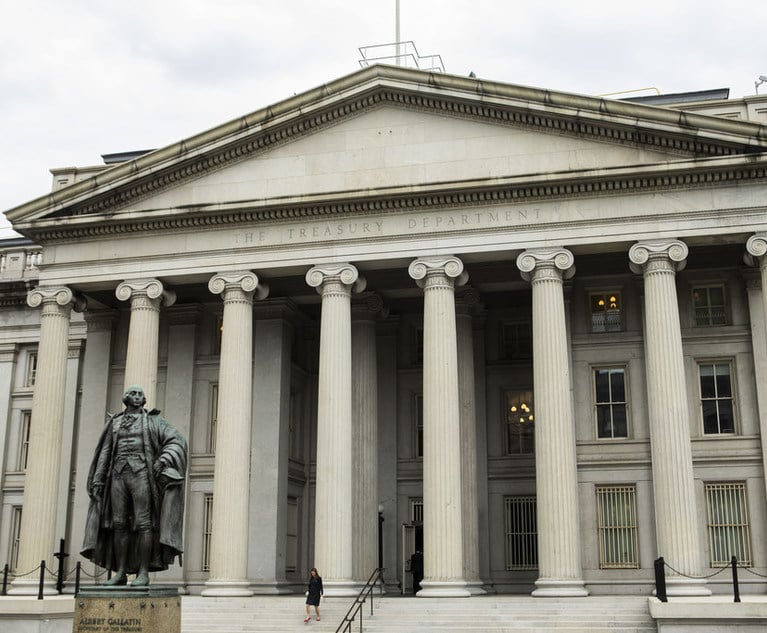Technology: Combating employee misconduct
The Computer Fraud and Abuse Act is a popular, yet controversial mechanism to seek recovery.
September 29, 2011 at 11:59 PM
4 minute read
The original version of this story was published on Law.com
Consider the following situation: An employee decides to leave a company in order to compete against it. Before announcing his departure, he copies confidential company information from company computers and then destroys the records. The next day, he announces his resignation.
Sadly, scenarios such as that described above occur regularly. Typically, an employer can assert any number of state law claims in an effort to remedy such misconduct. An often overlooked cause of action, however, is one under the federal Computer Fraud and Abuse Act (CFAA). Although primarily a criminal statute, the CFAA does provide for civil liability, giving the business another arrow in its quiver.
An interesting question has developed in such cases: Is the employee acting “without authorization” for purposes of the CFAA? The answer may depend upon the court in which the case is brought. For example, according to the 7th Circuit, the disloyal employee loses his status as an agent when he decides to turn on the company, thereby rendering any subsequent access of company computers “without authorization.” Conversely, the 9th Circuit narrowly construes the CFAA to find that employees who have had permission to access company computers do not lose that permission by becoming turncoats.
The CFAA, 18 U.S.C. §1030, makes criminal assorted acts with respect to “protected computers” that individuals access “without authorization” or while “exceeding authorized access.” For example, Section 1030(a)(2)(C) states that “[w]hoever intentionally accesses a computer without authorization or exceeds authorized access, and thereby obtains information from any protected computer shall be punished as provided in subsection (c) of this section.” Section 1030(g) provides for a civil action by any person who suffers “damage” due to particular CFAA violations.
The CFAA can be used to gain subject matter jurisdiction in federal court, which many businesses find preferable to state court. A potential hurdle, however, is whether an employee's misconduct is “without authorization” when it occurs while he is still employed and is accessing the type of information he routinely accessed in performing his job duties.
The 7th Circuit held in 2006 that the turncoat employee's breach of his duty of loyalty ends his agency relationship with the company and its corresponding authorization to access the company computers. International Airport Centers, L.L.C. v. Citrin, 440 F.3d 418, 421 (7th Cir.). Subsequently, the 9th Circuit held that a person uses a computer “without authorization” only when “the person has not received permission to use the computer for any purpose (such as when a hacker accesses someone's computer without any permission), or when the employer has rescinded permission to access the computer and the defendant uses the computer anyway.” LVRC Holdings LLC v. Brekka, 581 F.3d 1127, 1135 (9th Cir. 2009).
The 9th Circuit believes that “authorization” should be given its ordinary meaning (essentially, “permission”) because the CFAA does not define it. Id. at 1132-33. Nothing in the CFAA suggests that such permission disappears merely because an employee breaches a state law duty of loyalty to the employer. Id. at 1135. The criminal nature of the CFAA further suggests that under the rule of lenity, any ambiguity should be resolved in favor of the defendant. Id.
Some commentators believed that the reasoning in Brekka would prevail, and that the effect of Citrin would be minimized, leaving companies unable to pursue CFAA claims for “without authorization” misconduct occurring during employment. As demonstrated by several cases this summer, however, this has not been the case. Notwithstanding Brekka, recent district court cases—within the 7th Circuit, for example—have not distinguished or otherwise limited Citrin. See, e.g., Dental Health Prods., Inc. v. Ringo, No. 08-C-1039, 2011 WL 3793961 (E.D. Wis. Aug. 25, 2011) and Deloitte & Touche LLP v. Carlson, No. 11-C-327, 2011 WL 2923865 (N.D. Ill. July 18, 2011).
Thus, the debate over the reach of the CFAA rages on. Even in those jurisdictions that hold that the employee's misconduct is not “without authorization” if it occurs while he is still employed, the CFAA can be used for misconduct that occurs after termination, e.g., hacking into the company's computers to access data.
The CFAA is becoming a more popular, albeit somewhat controversial, mechanism to seek recovery for employee misconduct. Its role in remedying misconduct occurring during employment will continue to vary by jurisdiction, perhaps until the U.S. Supreme Court decides the circuit split as to what constitutes “without authorization.”
This content has been archived. It is available through our partners, LexisNexis® and Bloomberg Law.
To view this content, please continue to their sites.
Not a Lexis Subscriber?
Subscribe Now
Not a Bloomberg Law Subscriber?
Subscribe Now
NOT FOR REPRINT
© 2025 ALM Global, LLC, All Rights Reserved. Request academic re-use from www.copyright.com. All other uses, submit a request to [email protected]. For more information visit Asset & Logo Licensing.
You Might Like
View All
Internal Whistleblowing Surged Globally in 2024, So Why Were US Numbers Flat?
6 minute read
FTC Finalizes Child Online Privacy Rule Updates, But Ferguson Eyes Further Changes

Supreme Court Reinstates Corporate Disclosure Law Pending Challenge
Trending Stories
- 1LexisNexis Announces Public Availability of Personalized AI Assistant Protégé
- 2Some Thoughts on What It Takes to Connect With Millennial Jurors
- 3Artificial Wisdom or Automated Folly? Practical Considerations for Arbitration Practitioners to Address the AI Conundrum
- 4The New Global M&A Kings All Have Something in Common
- 5Big Law Aims to Make DEI Less Divisive in Trump's Second Term
Who Got The Work
J. Brugh Lower of Gibbons has entered an appearance for industrial equipment supplier Devco Corporation in a pending trademark infringement lawsuit. The suit, accusing the defendant of selling knock-off Graco products, was filed Dec. 18 in New Jersey District Court by Rivkin Radler on behalf of Graco Inc. and Graco Minnesota. The case, assigned to U.S. District Judge Zahid N. Quraishi, is 3:24-cv-11294, Graco Inc. et al v. Devco Corporation.
Who Got The Work
Rebecca Maller-Stein and Kent A. Yalowitz of Arnold & Porter Kaye Scholer have entered their appearances for Hanaco Venture Capital and its executives, Lior Prosor and David Frankel, in a pending securities lawsuit. The action, filed on Dec. 24 in New York Southern District Court by Zell, Aron & Co. on behalf of Goldeneye Advisors, accuses the defendants of negligently and fraudulently managing the plaintiff's $1 million investment. The case, assigned to U.S. District Judge Vernon S. Broderick, is 1:24-cv-09918, Goldeneye Advisors, LLC v. Hanaco Venture Capital, Ltd. et al.
Who Got The Work
Attorneys from A&O Shearman has stepped in as defense counsel for Toronto-Dominion Bank and other defendants in a pending securities class action. The suit, filed Dec. 11 in New York Southern District Court by Bleichmar Fonti & Auld, accuses the defendants of concealing the bank's 'pervasive' deficiencies in regards to its compliance with the Bank Secrecy Act and the quality of its anti-money laundering controls. The case, assigned to U.S. District Judge Arun Subramanian, is 1:24-cv-09445, Gonzalez v. The Toronto-Dominion Bank et al.
Who Got The Work
Crown Castle International, a Pennsylvania company providing shared communications infrastructure, has turned to Luke D. Wolf of Gordon Rees Scully Mansukhani to fend off a pending breach-of-contract lawsuit. The court action, filed Nov. 25 in Michigan Eastern District Court by Hooper Hathaway PC on behalf of The Town Residences LLC, accuses Crown Castle of failing to transfer approximately $30,000 in utility payments from T-Mobile in breach of a roof-top lease and assignment agreement. The case, assigned to U.S. District Judge Susan K. Declercq, is 2:24-cv-13131, The Town Residences LLC v. T-Mobile US, Inc. et al.
Who Got The Work
Wilfred P. Coronato and Daniel M. Schwartz of McCarter & English have stepped in as defense counsel to Electrolux Home Products Inc. in a pending product liability lawsuit. The court action, filed Nov. 26 in New York Eastern District Court by Poulos Lopiccolo PC and Nagel Rice LLP on behalf of David Stern, alleges that the defendant's refrigerators’ drawers and shelving repeatedly break and fall apart within months after purchase. The case, assigned to U.S. District Judge Joan M. Azrack, is 2:24-cv-08204, Stern v. Electrolux Home Products, Inc.
Featured Firms
Law Offices of Gary Martin Hays & Associates, P.C.
(470) 294-1674
Law Offices of Mark E. Salomone
(857) 444-6468
Smith & Hassler
(713) 739-1250







